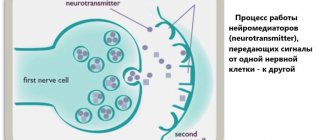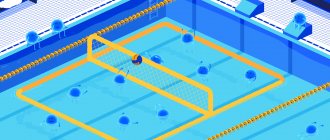What stress is like, what are the signs of its different stages and what can be done in a stressful situation, psychotherapist Elena Solodkaya tells in an interview for probusiness.io.
Elena Solodkaya
– Stress is usually understood as any more or less pronounced tension in the body associated with human life. And, no matter how inspired we are by good goals and great achievements in business and at work, fatigue and exhaustion will sooner or later make themselves felt.
Back in 1936, Hans Selye created the biological concept of stress. Yes, yes, stress is about the fact that we are all biological organisms.
Stages of stress
The first stage of stress - the alarm stage, or the anxiety stage - is quite loved and respected in the business environment. With it, all the adaptive resources of the body are mobilized: attentiveness to the task, the so-called “return” becomes enviably high.
Again, psychosomatics pass - or fade into the background: migraines, gastritis, ulcers, allergies, etc. A person can “burn” at work, showing miracles of productivity, that is, be a management’s dream: don’t eat, don’t sleep, just work.
However, if the stress factor is too strong or prolonged (for example, the emergency at work has been prolonged), then the primary reaction to stress flows into the second stage - resistance (stability) .
Stimuli that caused increased reactions in the body are no longer considered significant. The person gets used to it and calms down as best he can.
Important! Your tasks at work may remain the same, but your reaction to them may change: it will become cooler, or, if you like, relaxed. It's all about the amount of resources:
1. Available for a specific nervous system.
2. Spent on adaptation to stress during its first stage.
If the work required – and still requires – extreme stress (deadlines are running out, suppliers fail, subcontractors break agreements), and physical and mental strength is scarce, then reducing the intensity of work effort is the body’s necessary response to the current situation. Sooner or later, “burning huts” become simply uninteresting. I want to pass by and not get involved in another adventure with an unclear ending.
Otherwise, if the adrenaline button is still working (and you cannot stop), the third stage of living stress begins - exhaustion. At the last stage of development of the general adaptation syndrome - this is what stress is scientifically called - physical and mental energies are exhausted. Those defenses that helped you adapt to stress in the initial stages of living with stress no longer work. There is nothing left to “burn” at work.
From the outside it looks like a complete loss of motivation. There is not even the strength to defend new rules of the game, change working conditions, or reformulate production tasks. Under certain conditions, this may even seem convenient: the employee is flexible and does not demand anything for himself.
However, low productivity will sooner or later make itself felt. Plus - which is a minus - indifference and defensive devaluation of work processes by one person, which negatively affects the general atmosphere in the entire team.
What are the symptoms of professional neurosis?
There are “first signs” that you definitely need to pay attention to:
- Increased irritability, frequent and severe mood swings.
- Constant severe fatigue.
- There is no satisfaction from work, I often want to “give up everything.”
- Bad dream. I can’t sleep at night, but I want to sleep during the day.
- Violation of relationships with colleagues, friends, family.
- Headache.
- Chest pain.
- Feeling short of air.
- My head is constantly spinning with thoughts about work, unfinished projects, fears about possible dismissal or other negative events.
- After sleep there is no feeling of vigor, you still feel weak.
- It becomes difficult to maintain the same pace of life. It takes more time to do things and make decisions, fatigue sets in faster, and you constantly want to be distracted, lie down and relax.
What you can do and what is important to remember
To begin with, we note that the same Selye identified two types of stress: eustress and distress. The first inspires (mental processes are activated, emotions become sthenic in nature), the second depletes (including the human immune system). The key factor in distinguishing between the negative and positive effects of stress is its quantity (severity), which develops into quality.
In other words, stress itself is neutral: just non-standard situations, just a reaction of excitation of the body aimed at survival. But if the environment is chronically unfriendly, then mental and physical well-being becomes a serious problem.
Let's look at an example. An employee in your company is going through a period of adaptation to a new job (which is stressful in itself). At the same time, a tense situation arises at the enterprise - suppliers are missing deadlines. These two circumstances act cumulatively: they aggravate and intensify tension. That is, that same unfriendly environment appears. How to competently confront an objectively existing stressful situation?
There are a lot of studied coping strategies, that is, strategies for coping with stress, there are studies and recommendations on the effective construction of business processes and, in particular, on working with suppliers. But these are all general, abstract recommendations that are easy to evaluate when you are calm.
If the situation “goes into a tailspin,” then sobriety and balance can become a scarce resource. Cold calculation is replaced by strong emotions and even panic.
It turns out that a nervous breakdown can lead to more serious consequences - for example, depression?
– Yes, most of the symptoms described above are a description of a depressive state. But usually the diagnosis of depression is made after two weeks with a clear decrease in mood (although there are exceptions when a person experiences depression rather “bodily”, without a conscious decrease in mood).
Therefore, if you do not pay attention to unpleasant signs in time and do not begin to work through them at the level of thinking, emotions and behavior, your mental state can really worsen.
What to do?
In our case - no matter how banal it may sound at first glance, but these are “truths” that everyone forgets about - we can advise:
- Pay more attention to your physical condition (monitor the quality of sleep and nutrition, organization of proper rest).
- Use all types of support and assistance (from colleagues, superiors, family and friends).
- Delve into the specifics of your work and see and grasp its basic patterns and dependencies (even before they take on an emergency nature).
In order not to bring employees to a stressful state, and even more so to its third stage, it is important for managers to compare production tasks (volume, urgency, intensity and duration of work) and the psychophysiological capabilities of subordinates (general health, temperament, ability to work in a team, etc.) .d.).
The first will be helped by the good work of the planning department or the unit performing its functions, the second is a matter for the services responsible for working with personnel and direct managers. Knowledge and understanding of not only the business, but also the personal qualities of an employee can be helped by both classical surveys and trainings, and more “targeted” methods of psychological analysis: participant observation, experiments, creative tasks and competitions, etc.
The main thing, I repeat, is to prevent the third stage of stress - exhaustion.
If professional stress is a tense state that occurs in a working person (with relatively long and (or) intense exposure to emotionally negative and extreme factors associated with his professional activity), then the lines of its prevention will be as follows:
1. Optimization of work tasks and working conditions - this has already been described above.
2. Increasing personal stress resistance. In short, this is everything that normalizes and restores your health and mood: sports, friendly communication, various new impressions and aesthetic experiences.
The details and nuances of implementing anti-stress strategies are a separate conversation.
How to treat neurosis?
First of all, you need to eliminate the cause of the disease. More on this below.
In order to quickly relieve the patient of symptoms, the doctor may prescribe antipsychotics, tranquilizers, and antidepressants.
The main type of treatment that produces long-term effects is individual, group and family psychotherapy.
Neuroses create many problems at work and in everyday life, often they simply plague and cause torment. But they respond well to treatment. It is important not to delay, but to consult a doctor as soon as you notice the first symptoms.
Make an appointment with a doctor at ProfMedLab, our doctors know how to bring your mental health back to normal: +7 (495) 120-08-07
2 reviews
Roman Igorevich Ustinov Psychiatrist-narcologist
Experience: 13 years
telephone number for registration: +7
Admission 3000 rub.
- Diagnosis and treatment of mental illnesses, as well as rehabilitation of patients with addictions
4 reviews
Sergey Sergeevich Golikov Psychiatrist-narcologist
Experience: 7 years
telephone number for registration: +7
Admission 3000 rub.
- Alcohol and drug testing
- Registration of certificates for carrying weapons, state. secret, driver candidates
- ACC cupping, coding
1 review
Yulia Alekseevna Shedlina Psychiatrist
Experience: 1 year
telephone number for registration: +7
Admission 3000 rub.
- Diagnosis and treatment of uncontrolled aggression, bulimia and anorexia, depression, personality changes, manic-depressive psychosis, obsessive-compulsive disorder, fears and phobias, schizophrenia.
Are a nervous breakdown and a nervous breakdown, psychosis the same thing?
– Nervous breakdown and nervous disorder are overlapping concepts. Nervous disorder is also synonymous with mental disorder, therefore, as a generalized abstract concept, it can have signs of a variety of conditions. That is, a person who is not yet aware of what is happening to him (from a clinical point of view) still notes changes in his psychological status that he does not have in a normal state.
When talking about his problems, for example, to himself, to his friends, or when going to the doctor, he may say: “I think I have some kind of nervous disorder.” But the specifics of a mental disorder, that is, a specific name for the state in which a person is, can only be given by a specialist.
Psychosis is also a mental disorder, only deeper and more severe. Psychotic disorders are characterized by a more severe impairment of reality testing and a distorted perception of oneself and the world. This includes symptoms such as delusions, hallucinations, a feeling of external and sometimes otherworldly or alien influence (remember the famous aluminum caps), a sense of personal greatness, inadequate fear of persecution, and so on.
Can a nervous breakdown be chronic?
– From the very definition of a nervous breakdown it is clear that this is a rather acute and temporary reaction. If a person fails to slow down the progression of the disorder, then it continues to deepen in a specific individual direction, depending on the characteristics of the individual and the functioning of the psyche.
As a result, even after successful treatment, there may be relapses of disorders, for example, after another distress (distress is a negative form of stress; the positive form is called eustress - Ed.). But everything is individual.











